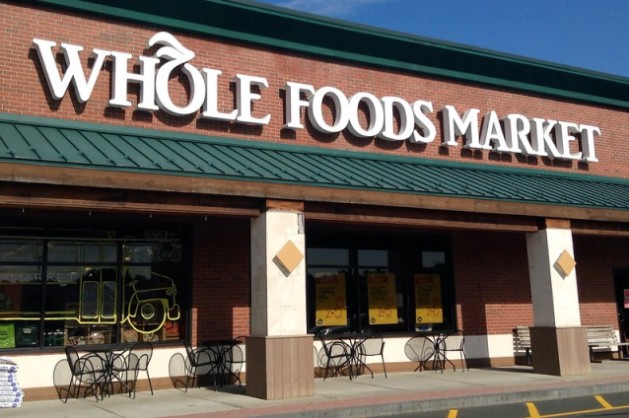 Recently I wrote a column for the Guardian criticizing Whole Foods for selling ketchup that contains high-fructose corn syrup, or HFCS, the synthetic sweetener that has been linked to a catastrophic rise in obesity and Type II diabetes.
Recently I wrote a column for the Guardian criticizing Whole Foods for selling ketchup that contains high-fructose corn syrup, or HFCS, the synthetic sweetener that has been linked to a catastrophic rise in obesity and Type II diabetes.
Unfortunately, at the time I couldn’t find much in the way of evidence to suggest that HFCS is actually worse for you than plain old sugar. The main problem with HFCS, it seemed, was its ubiquity and low cost, the latter a function of massive federal subsidies for corn. No subsidies, no HFCS. No HFCS, no three-liter bottles of soda.
So I sat up and paid attention yesterday when I came across Elizabeth Cooney’s “Be Well” column in the Boston Globe. Cooney reported that scientists at Princeton University had found that rats fed HFCS gained much more weight than those fed sucrose, packed on abdominal fat (which is considered particularly unhealthy) and had higher levels of fat in their blood. The study was published in the journal Pharmacology, Biochemistry and Behavior.
A press release put out by Princeton includes more details. Here is a key excerpt:
“Some people have claimed that high-fructose corn syrup is no different than other sweeteners when it comes to weight gain and obesity, but our results make it clear that this just isn’t true, at least under the conditions of our tests,” said psychology professor Bart Hoebel, who specializes in the neuroscience of appetite, weight and sugar addiction. “When rats are drinking high-fructose corn syrup at levels well below those in soda pop, they’re becoming obese — every single one, across the board. Even when rats are fed a high-fat diet, you don’t see this; they don’t all gain extra weight.”
The release goes on to say the study raises the strong possibility that HFCS is metabolized by the body differently from sucrose.
Hoebel’s methodology has come under fire, as critics say he and his colleagues were hazy about some key details, including how many calories the HFCS-consuming rats were getting as compared to their sucrose-eating cousins. Hoebel answers those criticisms in the Washington Post.
The Princeton study is not definitive, but it’s certainly suggestive. And it demonstrates that Michelle Obama’s crusade for healthy food could, if successful, have far more to do with keeping health-care costs under control than the bill signed by her husband last week.
We’ve already heard cries from the food industry and its defenders that government has no business regulating trans fats. Soon we’re going to hear it about HFCS as well.
But laboratory-created fake food is not a matter of consumer choice. These are dangerous substances that have been foisted on us by powerful corporations looking to save money. Keeping such substances out of the food supply would seem to be well within the purview of government regulation.
Photo (cc) by Jonathan Boeke and republished here under a Creative Commons license. Some rights reserved.
 Every so often I get codfish cakes from Whole Foods. Rarely, though, do I go with the full experience from my childhood. Tonight I decided to pull out all the stops and create a favorite meal my mother used to make.
Every so often I get codfish cakes from Whole Foods. Rarely, though, do I go with the full experience from my childhood. Tonight I decided to pull out all the stops and create a favorite meal my mother used to make.

 Recently I wrote
Recently I wrote